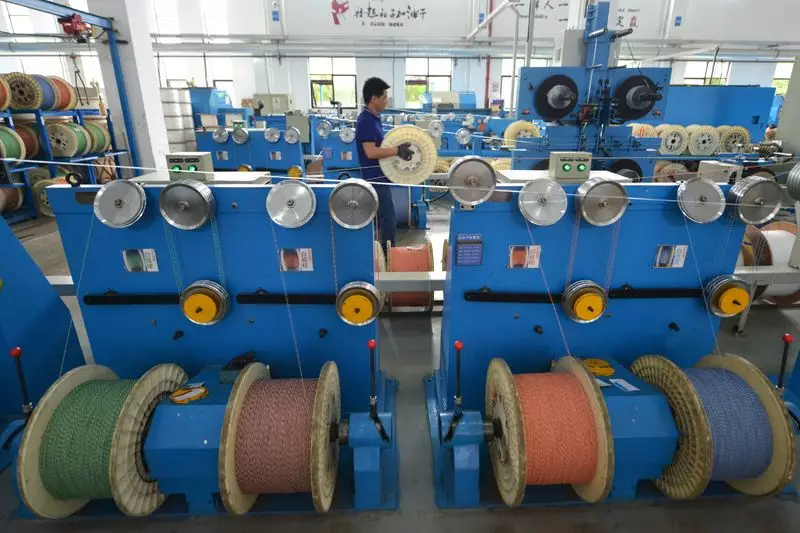China, the world’s second-largest economy, finds itself at a crossroads as it grapples with slowing growth across key economic indicators. Recent data from August revealed industrial output growth staggered to a five-month low, with additional declines noted in retail sales and new home prices. These shifts not only reflect a waning momentum but also evoke calls for swift and significant economic stimulus measures to reinvigorate activity. This downturn poses difficult questions for policymakers intent on steering the economy back on track.
The data released by the National Bureau of Statistics (NBS) shows that industrial output grew by just 4.5% year-on-year in August, down from 5.1% in July. This figure fell short of analysts’ expectations, which had predicted a growth of 4.8%. Such data points are indicative of broader economic challenges. Alongside the subdued industrial growth, retail sales increased by a mere 2.1%, markedly lower than the projected 2.5% and down from 2.7% the previous month. This downturn in consumer spending underlines the persistent weakness in domestic demand that has plagued the Chinese economy throughout the year.
The stagnation in retail activity reflects a larger concern: domestic demand remains stifled. Economists view this deceleration as a significant bottleneck that complicates the nation’s economic recovery efforts. As stated by ANZ’s senior China strategist Xing Zhaopeng, the current trajectory indicates that GDP growth for Q3 is likely to be lower than that of Q2. This grim outlook is further exacerbated by a combination of factors, including a clouded property market and a general hesitance among consumers to spend.
To counteract this troubling trend, Premier Li Qiang has highlighted the government’s intention to stimulate consumption and elevate household income. Simultaneously, President Xi Jinping has urged for a concerted effort to meet annual economic and social development goals, signaling a potential pivot towards more aggressive fiscal measures. Several analysts have suggested that introducing shopping vouchers could serve as an immediate remedy to bolster consumer confidence and spending.
The Chinese property sector, once a key driver of economic growth, now exacerbates the situation with its ongoing slump. August witnessed new home prices falling at their sharpest rate in over nine years. Of the 70 cities surveyed, only two reported any increase in home prices, either monthly or annually. This downturn demonstrates that even with some government intervention aimed at rescuing the ailing market, much more is required to entice consumers back to property investment.
The struggles in the property sector ripple through the broader economy, contributing to reduced consumer confidence and decreased spending. Analysts have pointed to the pressing need for substantial interventions aimed at assisting deeply indebted developers while also spurring interest among would-be home buyers. Nomura’s analysts predict that more aggressive measures are likely to be introduced in the fourth quarter, as the government scrambles to address these interrelated issues.
Despite the rising pressures and unfavorable data, China still possesses levers to stimulate its economy. The central bank has indicated that it remains poised to adjust reserve requirements for banks, offering a tool to inject liquidity into the financial system. However, there are warnings that significant constraints exist regarding interest rate cuts, necessitating a careful balance between fiscal easing and maintaining financial stability.
The data released in recent weeks resonates with a growing chorus calling for bold stimulus measures. If the Chinese leadership is serious about uplifting economic performance, readying strategic plans that extend beyond mere fiscal gestures will be imperative. The blend of weakened industrial output, dwindling consumer confidence, and property market instability presents a complex challenge that will require innovative and assertive action to turn the tide. As the year progresses, all eyes will be on Beijing to see how it navigates this delicate economic ecosystem.

